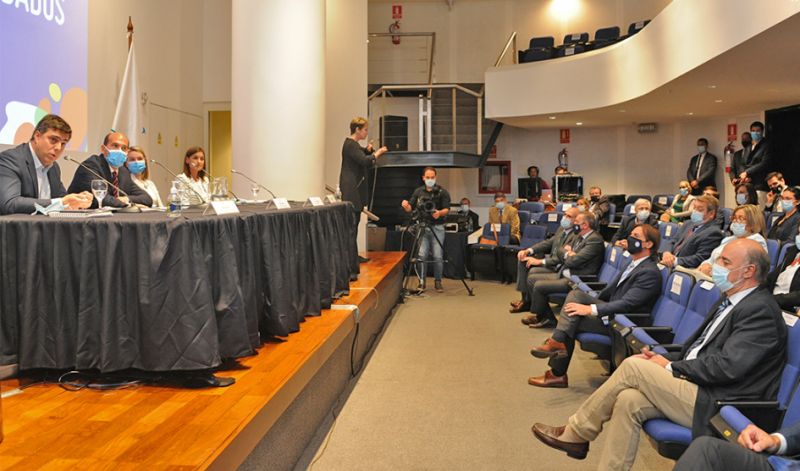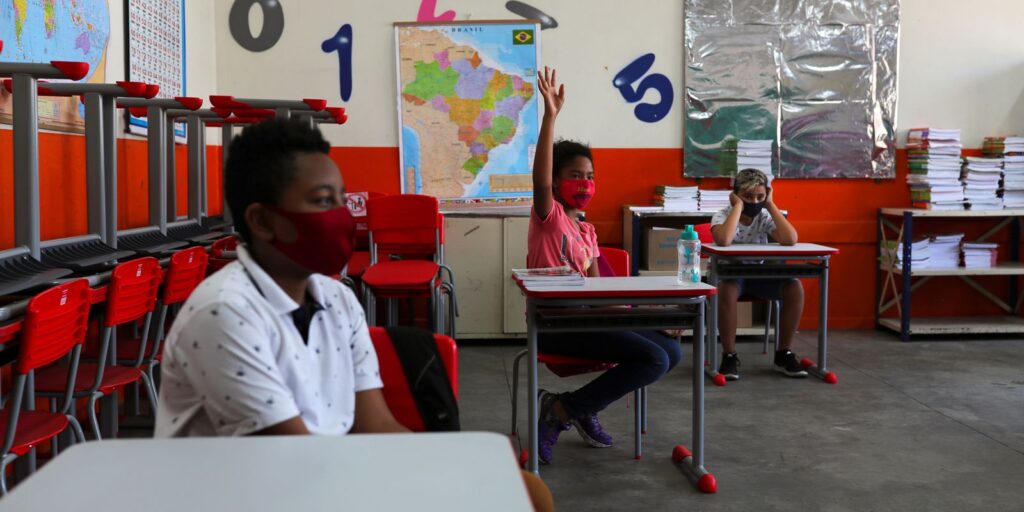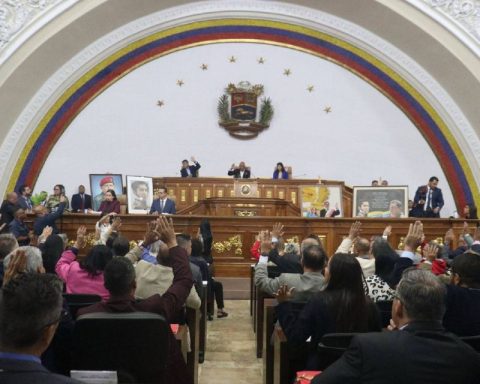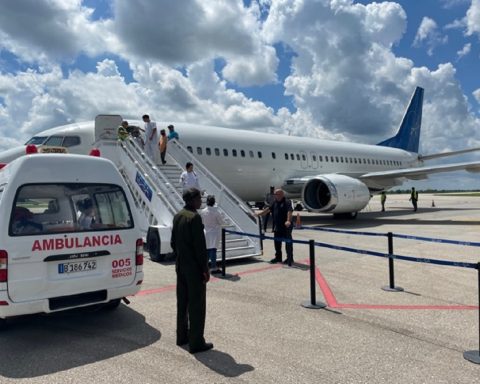Legal stability, training, humanization and increased benefits for early childhood make up the axes of work in the area of Care, said the Minister of Social Development, Martín Lema, in the presentation of the Month of Care. Some 2,400 personal assistants will access training and the figure of the employer will be established under the supervision of Mides. The activity was witnessed by President Lacalle Pou.
At the speakers’ table, this Tuesday the 5th, Lema was accompanied by the undersecretary, Andrea Brugman; the National Secretary for Care and Disability, Nicolás Scarela; and the National Director of Care, Florencia Krall.
In the auditorium, along with the President of the Republic, were present: the Secretary of the Presidency, Álvaro Delgado; the Minister of Labor and Social Security, Pablo Mieres, and the Minister of Tourism, Tabaré Viera; the undersecretary of the Ministry of Public Health, José Luis Satdjian; and the president of the National Institute for Children and Adolescents of Uruguay (INAU), Pablo Abdala, among other authorities.
The four aspects prioritized by the Ministry of Social Development refer to legal stability between personal assistants and those who receive care. Lema explained that, for this, technicians from the ministry and the Inter-American Development Bank (IDB) worked on the development of a pilot plan that will be implemented this month in the departments of Colonia, Tacuarembó and Maldonado. The plan establishes the figure of the employer, who will be supervised by Mides through real-time monitoring, he said.
The second axis deals with the training of personal assistants, since at the beginning of the current administration the National Care System had some 4,500 assistants, of which 2,400 lacked the necessary training.
To reverse this situation, Mides implemented 11 courses in February that covered 300 people, and another 300 were certified with competence. Between 2022 and 2023 there will be 1,800 trained personal assistants, which will cover the training of all those who perform this task.
Lema expressed that the axis of humanization in care includes a guide, which is already implemented, and a complaint protocol. In cases of abuse, it is necessary to have an action protocol, he explained.
The fourth pillar of the management establishes the increase in benefits in early childhood through socio-educational inclusion scholarships, which will allow access to nearby private kindergartens, and thus diversify the protection in early childhood care. “We plan to double the socio-educational inclusion scholarships,” he said. There are 27 participating gardens and 257 scholarships are available in addition to the annual average. Presidency


















